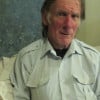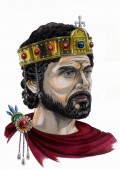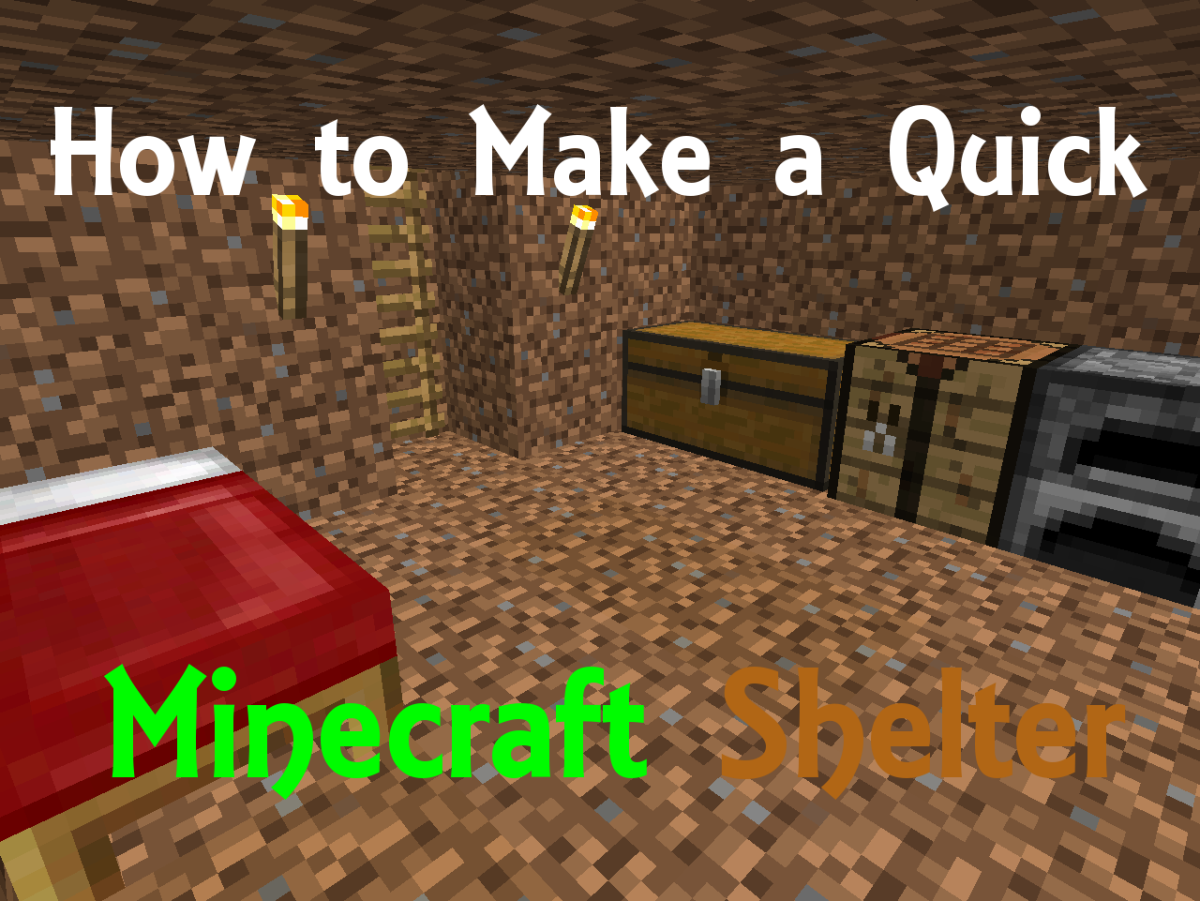Hunding's Saga - 11: Taking Shelter, Hiding in Estland's Shallows
North-east from Gotland across the sea lies the Estland shore
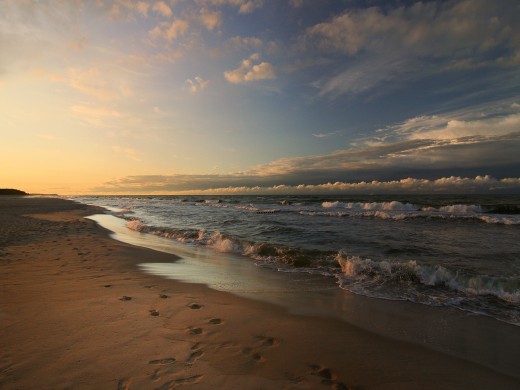
Leaving Gotland
Morning came, grey, cold, wet and mist-laden. Hunding breathed in the raw sea air, and with arms fully stretched breathed out again. He looked around, at the few dwellings, at the mist-shrouded sea. Of Gauti there was no sign. Gythi and his wife slept yet, in their snug bed closet off the main room of the low stone-walled cruck-framed house. It was still early. Aesc and Ealdwin snored in harmony, the low drone broken now and then by hog-like snorting from Aesc.
'Wake up everyone!' Tofig roused the rest of the crew whilst Sigrid busied herself with the morning meal of porridge and goat's milk, to be followed by smoked herring and ale. Gythi went outside for a short time and came back in with the tan-coloured smoked herrings for his wife to dish up.
The smell made Hunding think of home in Sonderstrand. His thoughts turned to his mother, Sige. Were she and Herdis still alive? If they were alive, where could they be? The only way he would learn the answer to that was by sailing into Jumne. That would be like putting his head into the mouth of a fire-breathing serpent! Anyway, he thought, Herdis would not longer know him. By now she could be a mother - with or without her say-so. She would have been pushed into thralldom or - worse still - sold on, well beyond Sige's mother-like care.
And where was Wulfwila now, his Aenglish sweetheart? Weeks had passed since he last saw her. Not knowing of Hunding's feeling for his daughter, Osferth could well have married her off to a young thegn from any of the wapentakes ringing Jorvik. She might even be wedded to an ealdorman by the time Hunding turned up on their doorstep again!
Caitlin - now she was something else altogether! There was something in her that stood out amongst all the Danes he knew. Feelings for her welled up in him that he had never known for Wulfwila, the callow trader's daughter who had never left Jorvik or the East Thrithing. Wulfwila was pale, waif-like, with long flaxen hair bound tightly to her head by pins like a nun. Wulfwila bored him. Caitlin's spirit spoke of a wildness he suddenly yearned for.
'This is not like you, Hunding', Tofig broke into his day-dreaming.
'What - oh, I was deep in thought', Hunding answered dully.
'You were deep in thought - about what? That fiery-haired woman in Roenne?' Tofig chuckled. 'Try to deny it, go on! Looking at you is like following the runes on a memorial stone. You have your thoughts cut across your brow as if someone had taken a hammer and chisel to you! There will be other women, mark my words. You had a woman in jorvik, I believe - what of her?'
'She is like a child in all but body', Hunding pondered.
'You might have brought her into your own world?' Tofig meant of course that Hunding should have taken her as a wife before setting out.
'Her father Osferth and her mother Wulfgifu did not know we were lovers, if you could call us that. Wulfwila would have been a willing learner, but she was bound to her fore-elders'.
Tofig fell silent, knowing any more words would gain him nothing. Hunding was now set on the Erse-Danish woman, Caitlin... If he ever saw her again.
'Row!' Hunding called out when his crew were sat on their benches. They still had other crewmen to find. He asked Tofig, 'Where can we find trustworthy men to fill these benches. It could yet cost us our freedom'.
'You should have said something to Gythi yesterday. Rik may have known men willing to fill the ship for a share in the silver we will gain from selling the swords and woollen goods. Craftsmanship such as Wulfstan's brings its own reward', Tofig waved forward at the long chest covered by oilskins to keep out the damp from the smith's fine workmanship.
'So where else can we find suitable men?' Hunding leaned on the steering oar and scratched his beard.
'In time we will find them amongst the Rus. for now we have little rowing to do once we come away from the lee-shore', Tofig assured him. 'Fear not, we will be able to swell our numbers when the need arises'.
'Dip your hands in the meal bags lest you wish your hands to blister', Hunding told Aesc when the Aenglishman held up his hands they were red raw from rowing. Tofig went along between the men on the benches with one of the bags for them to grab some of the soft white meal and rub their hands with it before taking up the oars again.
The oars were drawn and laid lengthways in the ship. Hunding did not ned to tell Tofig that the beitass should be set rightward against the sail from the ship's steerboard side to catch the south-westerlies. A path was set for north east and the prow of Braendings Slange sheared through the waves with her sail filled.
'I see land to steerboard!' Ealdwin yelled down to Hunding from where he sat astride the sail. The strong wind carried his yell away, but his hand talked for him, his index finger prodding the air.
True enough, when Hunding held his free hand across his brow he saw the blue-grey shadow of a far shore between the wall-high waves. What was this land? He looked to Tofig for an answer.
''That is Lett-land', Tofig read his look. He had come to know his fellow Dane well in the past week. 'The shore we need to steer for is further north-east. Pull your steering oar arm toward you until I tell you to take your earlier path...'
'Good, now push away again!' Tofig called a little later. The low-lying shore to the east gave way to open sea again before more land showed to steerboard.
'This is Oesel', Tofig waved toward the new shore. He added, 'The land will soon give way to sea again as we pass that isle, onward to the next isle we call Dagoe. From there we come about on a more easterly path and head to make landfall for the night on a smaller isle between there and the mainland. We all should rest well, as in the morning we have to row through the gap between the islands and the Estland coast close by to the east. There is a river beyond up which we must row for a short way and cross a lake, over which we turn southward before reaching Holmgard on the river Volkhov. There we can find more men for the really hard rowing'.
Tofig saw Odd clasp a hand to his forehead in mock disbelief and laughed,
'Fear not, friend. We shall make camp once or twice along the river, but we do not have a back-killing hard row ahead of us. there is enough food to keep up our strength - and even I shall be rowing with you!'
'Then we have nothing to worry about!' Aesc said drily to laughter from the crew.
'Aye, Aesc my friend, you have nothing to fear. Hunding will be steering, I shall be rowing and you will keep good time on your side!' Tofig had everyone bellowing with laughter. 'Who knows, the goddess Ran may push us upriver!'
'Careful, Tofig. Speak her name in vain and we may be jinxed yet!' Sverri's brow knitted.
Only the three Aenglishmen had no inkling of what lay behind Tofig's wit and Sverri's dread. Being unaware of the old gods and goddesses, and what tasks they under-took, Aesc, Ealdwin and Odd looked at one another, shrugged and put their shoulders to rowing
Next - 12: Lying Low
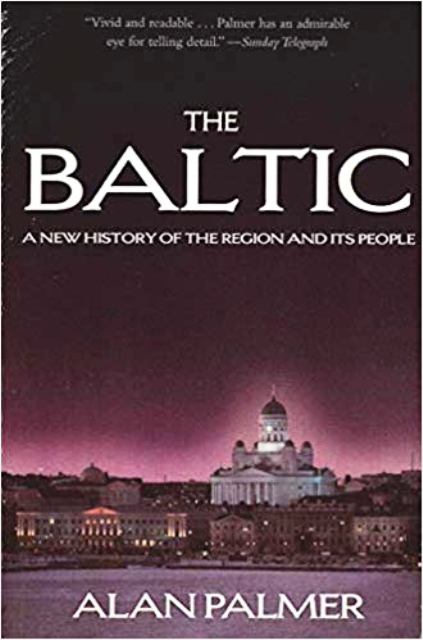
From the Kattegat to the Gulf of Finland there were many tribes who warred, traded and farmed the land, from the Danes, the Svear (Swedes), the Burgundians (who mostly migrated to Gaul) and the Goths (many of whom migrated to the Black Sea region before Christ was born) were the Germanic tribes who would later trade and raid as Norsemen and Vikings. East of the Jutland peninsula were the Wends (now Poles), the Prutzi (original Prussians, not to be confused with the Brandenburg knights who colonised the southern shore of the eastern Baltic), the Letts (Latvians and Lithuanians) and so on. If the region and its history interests you, this book will help understand how it came to be as it is now
Braendings Slange plies the Eastern Sea to trade with the Rus

Oestsjoen, the Eastern Sea (the Baltic)...
The trade super-highway and target for freebooters (piracy paid better than trade) in the northern lands was Oestsjoen (the Eastern Sea). There were many nations and peoples around the Baltic who relied on trade with the west through Sweden and Denmark, and through them Britain. Centres of trade in the region were Hedeby, now in North Germany, Birka not far from Stockholm, Koebenhavn (Cheaping Haven, or Copenhagen) and Ribe on the western coast of Jutland.
Freebooters came from all over southern Scandinavia and the southern shore of the Baltic - even from further away, like Friesland (Frisia on the Saxon shore, chiefly around the mouth of the Rhine, the Scheldt and the Elbe). They usually resorted to piracy because of the nature of the territory they lived in, islands of green washed by the tide near the rivermouths. This is why the Saxons came to Britain, with the promise of large tracts of land to be cultivated.
Craftsmen relied on their sea-going neighbours who traded in faraway markets for furs, walrus ivory, amber, swords and other fine weaponry. Traders might navigate the rivers as far away as Arabia and the Caspian Sea, in days when the riverways did not dry out as they have done in the last few hundred years.
And the slave market flourished along this seaway... there is another Hub-page in the VIKING series that deals with the theme.
© 2011 Alan R Lancaster
